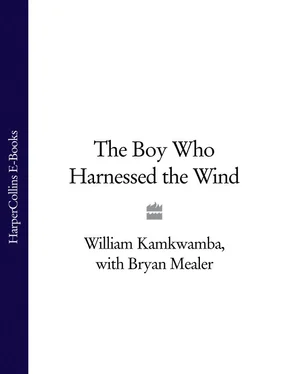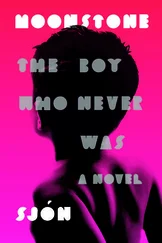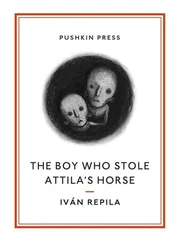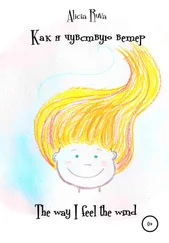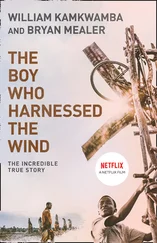He fell to the ground, holding his heart.
“ Eh , mayo ine! I’m dead.”
Usually, whichever team won first got to be America the following round, since America always defeated Vietnam in the video show.
WE WERE A SOLID gang of three: myself, Geoffrey, and our friend Gilbert, whose father was the chief of our whole Wimbe district. Everyone called Gilbert’s father Chief Wimbe, even though his real name was Albert Mofat.
When we got bored with playing USA versus Vietnam, Geoffrey and I went to find Gilbert. Going over to Gilbert’s house always guaranteed a show, as the chief’s work was never done. As usual, we found a line of truck drivers, market women, farmers, and traders waiting outside under the blue gum trees to share their concerns and grievances. Each held a chicken under one arm, or a small bit of cash in hand as a gift for their great leader. During these personal encounters with the chief, people addressed him as “ Charo, ” the ruler of all the land.
“ Odi, odi, ” said a farmer at the doorstep, meaning hello, can I come in?
The chief’s messenger and bodyguard, Mister Ngwata, stood at the door in his short pants and army boots, dressed as a policeman. It was Mister Ngwata’s job to protect the chief and filter all of his visitors. He also handled all the chickens.
“Come, come,” he said.
The chief sat on the sofa, dressed in a crisp shirt and nice trousers. Chiefs usually dressed like businesspeople, never in feathers and hides. That’s in the movies. Chief Wimbe also loved his cat, which was black and white but had no name. In Malawi, only dogs are given names, I don’t know why. The cat was always in the chief’s lap, purring softly as the charo stroked its neck.
“ Charo, Charo ,” the farmer said, bending to one knee and gently clapping his hands as a sign of respect. “We have an issue that requires your intervention. The land you granted me fifteen years ago is being encroached upon by my brother’s son. I need you to help so there’s no bloodshed.”
“Very well,” the chief replied. “Let me think about this and carry out some research. Come back on Sunday and I’ll have an answer.”
“Oh, zikomo kwambiri, Charo. Thank you, with respect.”
We waited until the farmer left and approached Mister Ngwata.
“We’re here to see Gilbert,” we said as we passed through the door.
“Hmmph.”
Gilbert was in his room with a tape deck singing to Billy Kaunda, who’d just been voted Malawi’s best musician of the year. For a boy, Gilbert had a beautiful singing voice and would later record two albums in Blantyre. My voice sounded like one of the guinea fowl that screeched in our trees as it pooped, but I never let that stop me.
“Gilbert, bo?”
“Bo!”
“Sharp?”
“Sharp!”
This was our slang, strictly observed at every meeting. The word bo was short for bonjour, started by some chaps learning French in secondary school and wanting to show off. I don’t know where “sharp” came from, but it was like saying, “Are you cool?” If you were feeling really good, you could even go a bit further:
“Sure?”
“Sure!”
“Fit?”
“Fit!”
“ Ehhh .”
“Let’s go to trading,” I said, meaning the trading center. “I hear the drunkards were spilling out of Ofesi last night.”
This was the Ofesi Boozing Centre, a forbidden and therefore fascinating place. Ofesi sat on the outskirts of the trading center, one of the last shops before the road opened toward Chamama town. Loud, thumping music always played inside the dark doorway, even at noon. It was where men with screwed-up eyes would appear in the doorframe, smoking cigarettes, then toss out empty cardboard cartons of booze to join the mountain of others in the dirt. Whereas most people saw garbage in those cartons, we saw treasure and possibility.
Although Geoffrey, Gilbert, and I grew up in this small place in Africa, we did many of the same things children do all over the world, only with slightly different materials. And talking with friends I’ve met from America and Europe, I now know this is true. Children everywhere have similar ways of entertaining themselves. If you look at it this way, the world isn’t so big.
For us, we loved trucks. It didn’t matter what kind of trucks: four-ton lorries that rumbled past from the estates kicking up dust, or the half-ton pickups that traveled back and forth to Kasungu town, just an hour’s drive away, with passengers squeezed in back like a pen full of chickens. We loved all trucks, and each week, we’d compete to see who could build the biggest and strongest one. While my friends from America could find miniature trucks already assembled in their shopping malls, we had to build ours from wire and empty cartons of booze. Even still, they were just as beautiful.
The cartons discarded by the drunkards at Ofesi once held Chibuku Shake Shake, a kind of beer made from fermented maize that is popular in Malawi. It’s sour tasting and contains bits of maize that settle at the bottom, requiring you to shake it up before enjoying, hence the name. Believe it or not, it’s actually nutritious. I’m not a drinker myself, but I’ve been told it takes several cartons of Shake Shake to get a person drunk, so of course, people in Ofesi drink as many as possible before tossing them into the road.
After washing out the booze, these cartons were ideal for making the chassis of a toy truck. We used beer bottle caps for wheels, which also doubled as counters at school (“Three Coca-Cola plus ten Carlsberg equals thirteen”).
We picked mangoes from the neighbor’s trees and traded them for lengths of wire, which we used to make axles and attach the bottle cap wheels. We later discovered that plastic cooking oil caps worked much better as wheels, enabling the trucks to last much longer. We even took our fathers’ razor blades and cut designs into the plastic to give each vehicle its own signature treading. That way, when you saw a tire track in the dirt, you knew instantly if it belonged to the great fleets of Kamkwamba Toyota, for instance, or Gilbert Company LTD.
Soon we were building our own monster wagons, called chigirigiri, that resembled something like a go-cart in America. The frames were thick tree branches forked at one end, where a person could sit at the junction. We then dug up large, round tuber roots called kaumbu and carved them into wheels, using blue gum poles as axles. All the loose parts were then lashed together with vine and tree bark.
Taking a rope, one person pulled the car while the driver steered with his feet. With two cars side by side, we held monster derbies down the dirt road.
“Let’s race.”
“For sure.”
“Last one to reach Iponga’s will go blind!”
“GO!”
Iponga Barber Shop was the first of its kind in the Wimbe trading center, and where I got all my haircuts. When my father brought me there each month, Mister Iponga would drape me in a tattered sheet and say, “What will it be?” Pictures of men with many different styles hung from the wall—styles such as the Tyson, after the famous American boxer, in addition to the English Cut, the Nigeria, and the Buddha, which was totally bald. I usually went for the Office Cut, which was close all over without any frills. I think it was the cheapest, too.
Of course, the problem with getting haircuts in the trading center was the frequent power outages that plagued the country. These could easily happen while Iponga held his electric clippers to your head.
“Oops, lost the power. Come back in a few hours.”
“But…”
The best idea was to bring a hat, or else go at night, so you could slip home under the cover of darkness and return the next morning to have it fixed.
Читать дальше
